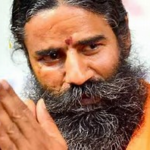
In a significant development, the Department of Justice in the Union Law Ministry has announced the appointment of five judges as chief justices of various high courts. This move aims to fill key vacancies and ensure the smooth functioning of the judicial system across different states.
One of the notable appointments is that of Justice Sanjay Vijaykumar Gangapurwala, who has been elevated from the acting chief justice of the Bombay High Court to the position of chief justice of the Madras High Court. Additionally, Justice Ramesh Deokinandan Dhanuka has been appointed as the chief justice of the Bombay High Court.
Justice Dhanuka, who is currently serving as a judge in the Bombay High Court, is due to retire on May 30 upon reaching the age of 62. As a result, his tenure as Chief Justice of the Bombay High Court will be effectively limited to four days. This appointment comes after the office of the Chief Justice of the Bombay High Court had remained vacant for some time following the elevation of Justice Dipankar Datta to the Supreme Court.
Furthermore, Justice Augustine George Masih of the Punjab and Haryana High Court has been appointed as the Chief Justice of the Rajasthan High Court. Justice Mamidanna Satya Ratna Sri Ramachandra Rao, also from the Punjab and Haryana High Court, has been named as the Chief Justice of the Himachal Pradesh High Court. Lastly, Justice Sarasa Venkatanarayana Bhatti of the Kerala High Court has been appointed as Chief Justice of the same court.
Earlier this week, Justice S Vaidyanathan was appointed as the acting chief justice of the Madras High Court, while Justice T Raja, who previously held the acting chief justice position, retired upon reaching the age of 62.
The Supreme Court Collegium had recommended Justice Gangapurwala’s appointment as the chief justice of the Madras High Court in April. The recommendation was made considering the vacant position caused by Justice Dipankar Datta’s elevation to the Supreme Court. Similarly, the Collegium proposed Justice Dhanuka for elevation as the chief justice of the Bombay High Court.
It is worth noting that while Supreme Court judges retire at the age of 65, high court judges retire at 62 years old.
These appointments reflect the government’s commitment to maintaining the integrity and effectiveness of the judiciary by ensuring a swift and seamless transition in key judicial positions. Despite the brief tenures of some appointees, their expertise and experience are expected to contribute significantly to the efficient functioning of their respective high courts.
As the newly appointed chief justices assume their roles, it is anticipated that they will continue to uphold the principles of justice, fairness, and the rule of law, further strengthening the judicial system in their respective jurisdictions.
In a significant development, the Department of Justice in the Union Law Ministry has announced the appointment of five judges as chief justices of various high courts. This move aims to fill key vacancies and ensure the smooth functioning of the judicial system across different states.
One of the notable appointments is that of Justice Sanjay Vijaykumar Gangapurwala, who has been elevated from the acting chief justice of the Bombay High Court to the position of chief justice of the Madras High Court. Additionally, Justice Ramesh Deokinandan Dhanuka has been appointed as the chief justice of the Bombay High Court.
Justice Dhanuka, who is currently serving as a judge in the Bombay High Court, is due to retire on May 30 upon reaching the age of 62. As a result, his tenure as Chief Justice of the Bombay High Court will be effectively limited to four days. This appointment comes after the office of the Chief Justice of the Bombay High Court had remained vacant for some time following the elevation of Justice Dipankar Datta to the Supreme Court.
Furthermore, Justice Augustine George Masih of the Punjab and Haryana High Court has been appointed as the Chief Justice of the Rajasthan High Court. Justice Mamidanna Satya Ratna Sri Ramachandra Rao, also from the Punjab and Haryana High Court, has been named as the Chief Justice of the Himachal Pradesh High Court. Lastly, Justice Sarasa Venkatanarayana Bhatti of the Kerala High Court has been appointed as Chief Justice of the same court.
Earlier this week, Justice S Vaidyanathan was appointed as the acting chief justice of the Madras High Court, while Justice T Raja, who previously held the acting chief justice position, retired upon reaching the age of 62.
The Supreme Court Collegium had recommended Justice Gangapurwala’s appointment as the chief justice of the Madras High Court in April. The recommendation was made considering the vacant position caused by Justice Dipankar Datta’s elevation to the Supreme Court. Similarly, the Collegium proposed Justice Dhanuka for elevation as the chief justice of the Bombay High Court.
It is worth noting that while Supreme Court judges retire at the age of 65, high court judges retire at 62 years old.
These appointments reflect the government’s commitment to maintaining the integrity and effectiveness of the judiciary by ensuring a swift and seamless transition in key judicial positions. Despite the brief tenures of some appointees, their expertise and experience are expected to contribute significantly to the efficient functioning of their respective high courts.
As the newly appointed chief justices assume their roles, it is anticipated that they will continue to uphold the principles of justice, fairness, and the rule of law, further strengthening the judicial system in their respective jurisdictions.





